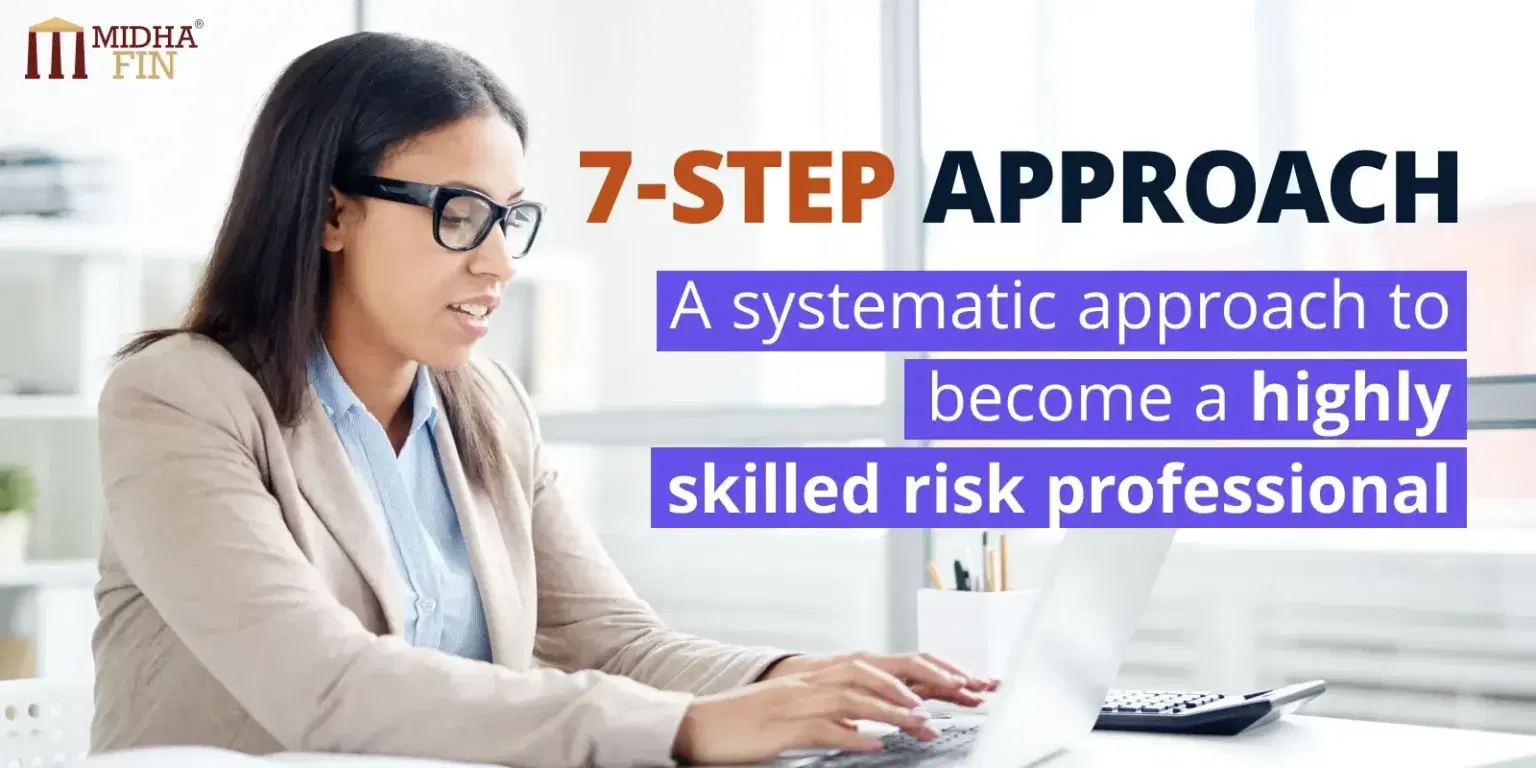Career Development
7 Step Approach to Become a Highly Skilled Risk Professional

Introduction
Many companies benefit from hiring professionals who can offer insight on ways to maximize profits. A risk management specialist helps companies understand internal and external risk factors that affect an organization’s financial success. If you’re interested in the Risk management domain, In this article, we will provide systematic step-wise guidance on how to become a risk management specialist.
Risk Management Professional-Overview
A risk management specialist is a financial manager who identifies and assesses potential risks to help the company make informed decisions about its operations. Risk refers to an event that could impact a company’s profits.
Risk management professionals analyze risks to provide their companies with financial insight before they make important business decisions.
7-step Systematic Process to become a Pro-Risk professional.
1st Step- Obtain a bachelor’s degree:
Start by earning a bachelor’s degree in a relevant field, such as finance, economics, business administration, mathematics, statistics, engineering, or a related discipline. This will provide you with vital resources that will help you in your risk management career.
However, it should also be kept in mind that earning a bachelor’s in any of the above-mentioned subject areas provides a solid foundation to develop expertise in the risk management domain.
2nd Step-Seek an Entry-level Risk position:
Seek internships or entry-level positions in risk management or related fields. This will help you gain practical experience and exposure to real-world risk scenarios. This will lay down a solid foundation for risk understanding and management.
3rd step- Gain Vital Experience while engaging in deep work.
Experience is the best teacher, so let it grow and nurture you. Take Learning from each day and jot down new learnings and experiences gathered from a new task or project. Also, keep a separate note of “Innovation and Strategy” used while getting stuck on a problem. Also, be proactive in participating in crucial projects that will expose you to new risk dimensions.
Stick to this habit and you will experience the exponential Learning curve which will foster and develop your skills over a long period.
4th Step-Pursue Risk Management Certification
While you are Learning deeply with experience, the best way to supplement it is by going for an advanced risk management certification such as FRM, PRM, etc which will let you take a giant leap in your risk management career. The FRM is one of the leading risk management certifications that acknowledges your exceptional risk management understanding which will serve as a lever to enhance your career.
5th Step- Master any risk-related technical skill.
Competence in programming languages like Python, R, or MATLAB is crucial for implementing risk models, running simulations, and performing complex calculations. The best way to upgrade your Risk management skills is to master at least any one or preferably more to leverage your risk management skills to deduce quality output that can have a significant impact on the decision-making process.
6th Step- Develop Soft skills.
Risk professionals need to analyze data and make informed decisions which require analytical skills, also the daily interaction on risk reports with stakeholders requires good communication skills. In the context of risk management roles and responsibilities a highly developed soft skill is quite crucial as “understanding” and “conveying with efficiency” are two different domains.
7th step- Stay Updated
Striving for excellence is a continuous process of staying committed and practicing your craft on a continuous basis. In a similar way Risk management practitioner needs to keep practicing the craft and keep themselves updated with the continuous development programme.
Important note
The steps mentioned above do not need to be in a sequence i.e., Earning any of the Risk Management Certifications and Mastering Technical skills can be done parallelly with the Job. On the same lines, developing soft skills and staying updated, is quite possible while gaining work experience. In most cases, in fact, work experience acts as a catalyst i.e., it develops core skills as well as soft skills.
Conclusion
Becoming a Pro-risk professional is a continuous process. However, the process of becoming a pro needs a lot of inputs in the form of educational level, Risk Experience Quality, Level of commitment to the profession, advanced level certification, technical skills, etc.
In addition to this, Networking also plays a crucial role as it provides an environment that supports growth and exposure.


